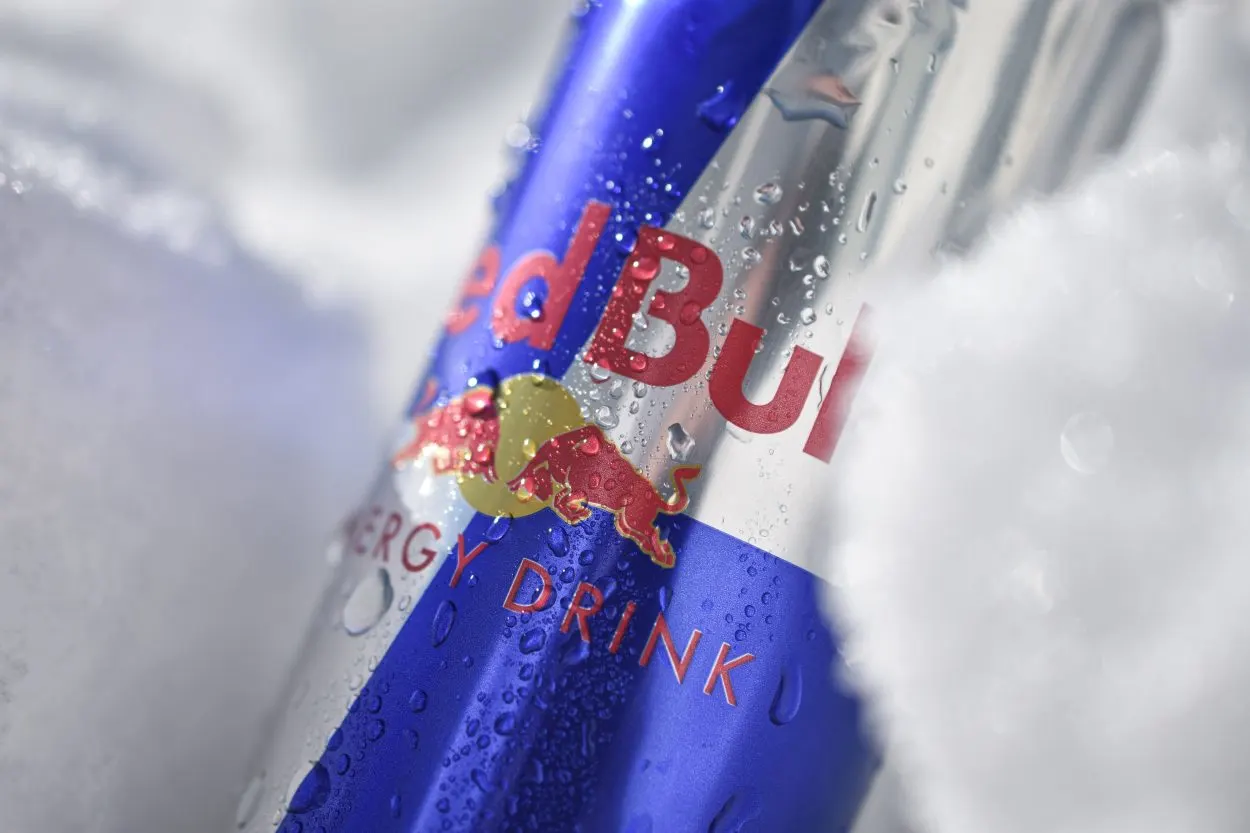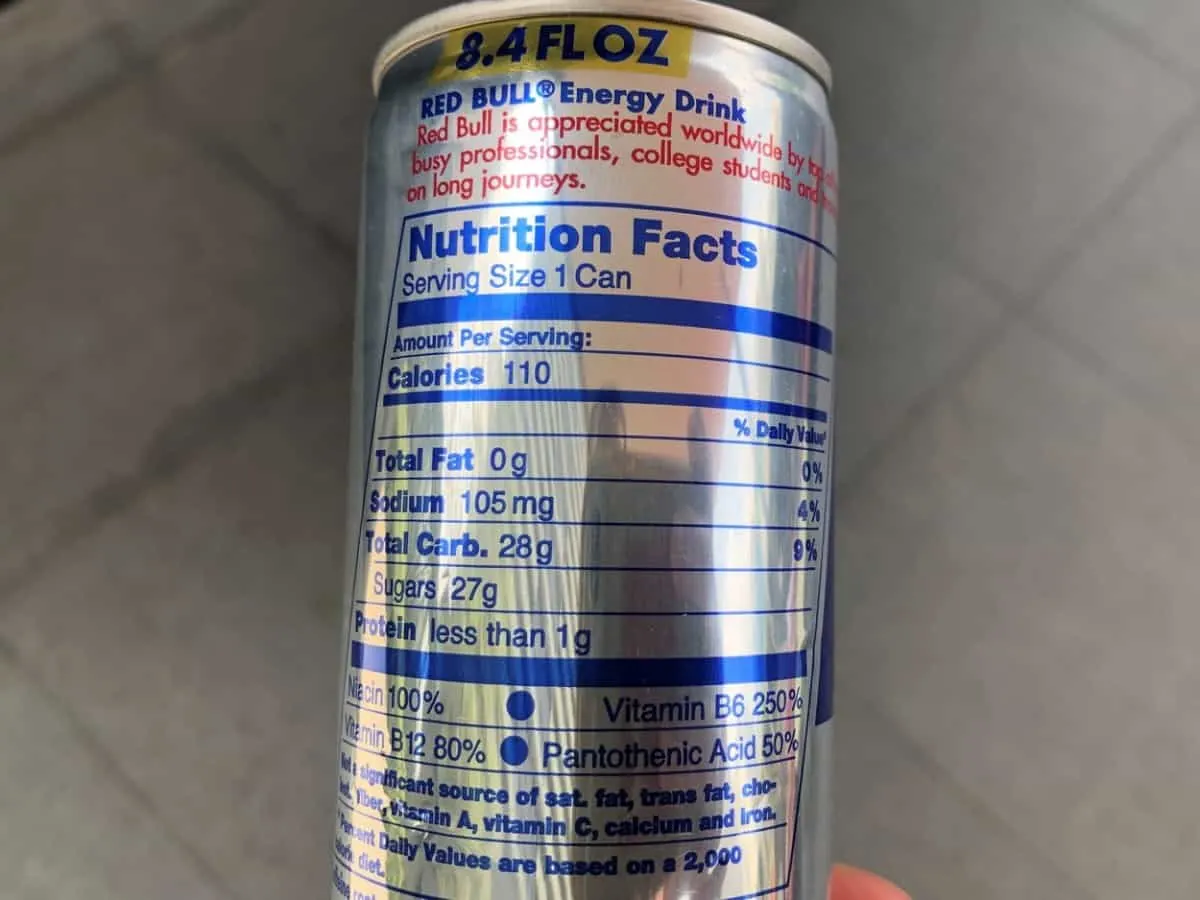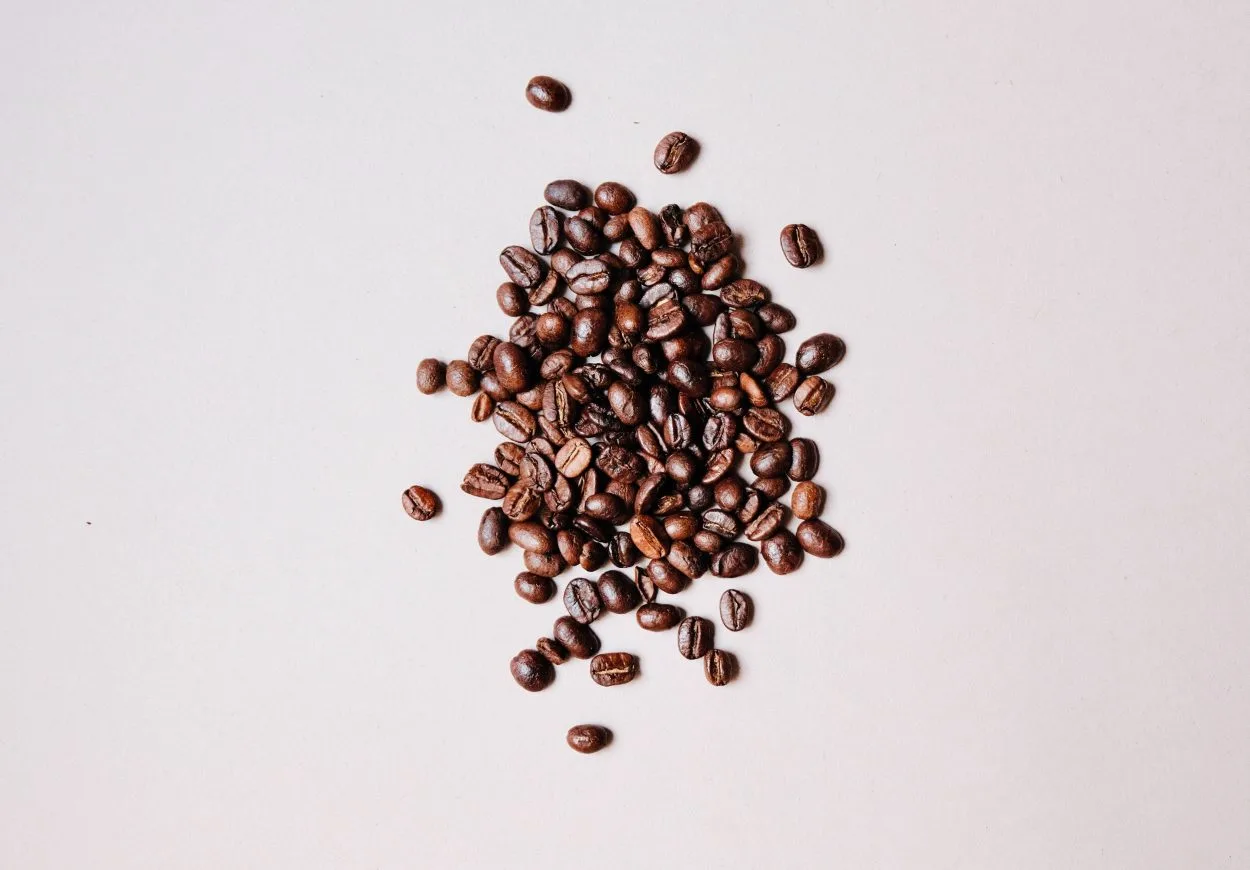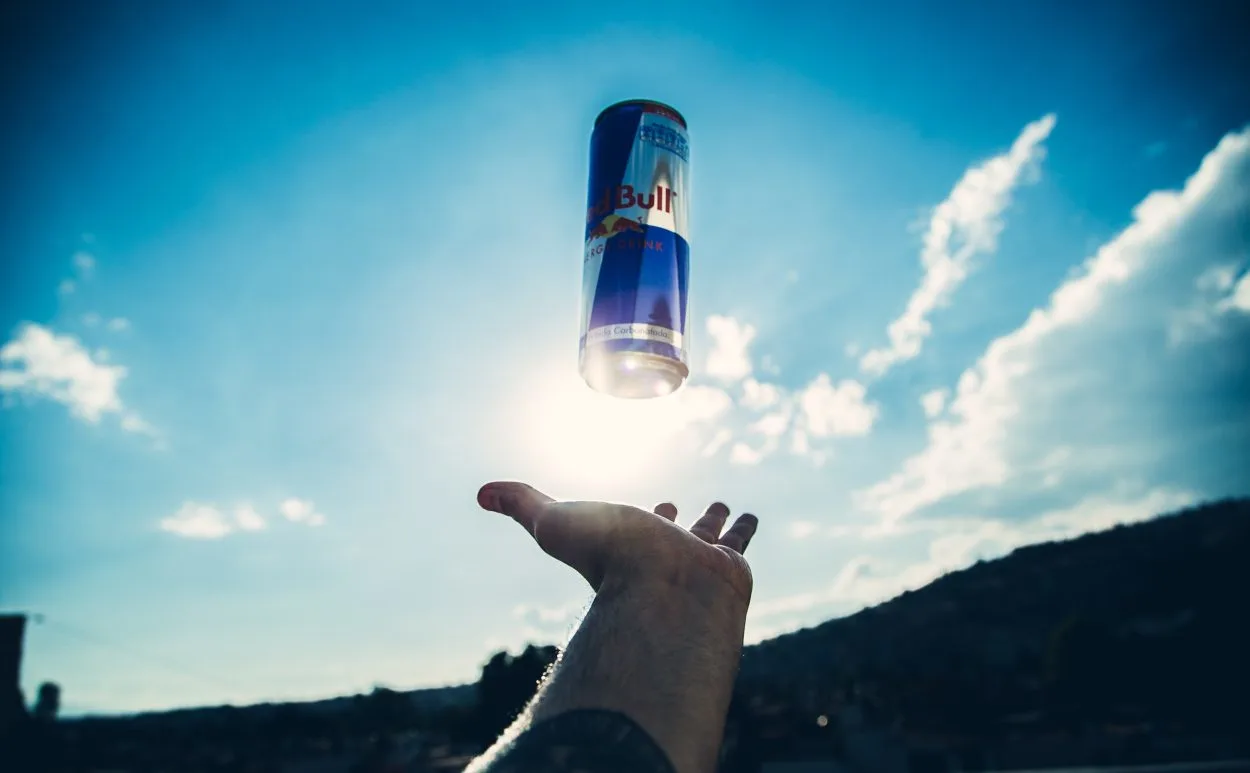
Keto is one of the difficult diets, you can only consume low-carb and high-fat foods. There aren’t many foods that are keto-friendly, even Red Bull isn’t keto-friendly as it contains high quantities of carbohydrates and sugar.
However, there’re substitutes for Red Bull, like sugar-free Red Bull. If you don’t want to mess up your keto diet, sugar-free drinks are the best option for you.
For people who aren’t on the Keto diet, an 8.4-ounce (260-ml) can of Red Bull provides:
- Calories: 112
- Protein: 1.2 grams
- Fat: 0 grams
- Carbs: 27 grams
- Sugar: 27 grams
- Caffeine: 75 mg
As you should know already, Red Bull is one of the most consumed drinks, even minors consume it as they’re oblivious of the severe health complications.
Even if you’re an adult, keep in mind to not go crazy and consume an excessive amount of Red Bull, because it might not kill you, but it surely will cause many health problems.
Red Bull or any other energy drink isn’t as good for your health as you would think, so you need to be careful about its long-term effects. We’ll talk about how Red Bull’s ingredients affect you, so keep reading.
Let’s get started!
Contents
What Is Red Bull?

Red Bull is an energy drinks brand sold by an Austrian company under the name Red Bull GmbH. Its market share is about 38% and is one of the most popular drinks since 2019.
You can call it Regina George of the energy drinks world.
It was launched in 1987, and since then, more than 100 billion Red Bull cans have been sold, and in just 2021, about 9.8 billion cans were sold worldwide, these statistics prove that in the coming years, Red Bull will take the throne.
Originally, Red Bull was manufactured only in a single nondescript flavor, however, over the course of time, several variants have been added of which few are:
- Red Bull Cola
- The Yellow Edition
- The Orange Edition
- Grapefruit Twist Summer Edition
- The Blue Edition
- The Green Edition
- The Red Edition
- Coconut Berry Summer Edition
Here is a nutritional table for one can of 8.4 fl oz (258 g) of Red Bull:

| Nutrients | Value |
| Carbohydrate | 26.39 g |
| Sugar | 26.37 g |
| Protein | 1.19 g |
| Caffeine | 74.82 mg |
| Calcium | 15.48 mg |
| Magnesium | 49.02 mg |
| Potassium | 7.74 mg |
| Sodium | 100.62 mg |
| Iron | 0.15 mg |
Here is a list of all the ingredients present in Red Bull:
- Carbonated Water.
- Sucrose.
- Glucose.
- Citric Acid.
- Sodium Bicarbonate.
- Magnesium Carbonate.
- Taurine.
- Flavors.
- Colors (Caramel, Riboflavin).
- Caffeine.
- Vitamins B6.
- Vitamins B12.
- Niacinamide.
- Pantothenic Acid.
How Much Caffeine Does Red Bull Have?

Red Bull’s slogan is, “Red Bull Gives You Wings”, and as it has caffeine, it’s supposed to “give you wings”. Caffeine has a huge effect on our bodies, so you should consume it in an adequate amount.
One can of Red Bull 8.4 fl oz (258 g) contains about 74.82 mg of caffeine, which in my opinion isn’t a lot, but it’s a fair amount.
Moreover, even the littlest amount of caffeine can have side effects on caffeine-sensitive people. For not-so-caffeine-sensitive people, an immoderate amount will surely show its side effects. These include:
- Restlessness.
- Shakiness.
- Jitteriness.
- Insomnia.
- Headaches.
- Dizziness.
- Fast heart rate.
- Dehydration.
- Anxiety.
- Dependency.
Can I have Red Bull On Keto?
While being on a strict ketogenic diet, energy drinks and other various high carbs, sugar, and caffeine beverages should be omitted.
The obvious reason, while your body is on ketosis, you wouldn’t want to pull yourself out of it by consuming restricted items.
Normal Red Bull having around 75 mg of caffeine and 26 g of sugar isn’t a good option to drink on your keto diet.
In my opinion, on a serious keto diet, sugar beverages should be completely avoided even if they are low-sugar variants because caffeine amounts remain the same in each variant.
However, if you feel the urge to drink a can, try to limit yourself to a few sips or replace it with another healthy drink.
What Are The Effects Of Red Bull?

Surprisingly, Red Bull traces its origins to a very much similar energy drink called Krating Daeng. Daeng was introduced in Thailand.
Daeng was marketed to laborers and students as a means to augment their productivity. Daeng also contained caffeine, and we all know how caffeine affects the body.
Drinks that have caffeine and sugar, affect cognitive performance, like increased attention or reaction speed. Caffeine also increases mental as well as athletic performance.
While a moderate amount of Red Bull can increase upper body muscle endurance, immoderate amounts can lead to cardiac or psychiatric conditions.
Positive effects are impressive, however, everything has its negative effects as well, so let’s shed light on those effects. Beware of these effects before drinking Red Bull on a ketogenic diet.
- Increased blood pressure and heart rate.
Blood pressure and heart rate are the most important measures for heart health because increased levels have an association with a risk of high blood pressure and heart disease.
There’re studies that show that people who consume a 12-ounce can of Red Bull experience increased blood pressure or increased heart rate, this happens within 90 minutes after drinking it.
While occasional intake may not affect you, excess intake specifically in younger people has to be associated with irregular heart rate or worse a heart attack.
- Can increase the risk of type 2 diabetes.
An excessive amount of sugar intake from sweetened drinks can possibly increase the risk of type 2 diabetes.
There’s a study that showed that people who consume 1-2 servings of sugar from sugar-sweetened drinks daily were linked with a 26% increased risk of type 2 diabetes.
As you must know, Red Bull is sugar-sweetened. It contains about 29 grams of sugar in an 8.4-ounce can, therefore consuming Red Bull every day may increase the risk of type 2 diabetes.
Watch this video to learn more about how energy drinks affect your health.
- Can damage your teeth.
Research says that consuming acidic drinks may damage tooth enamel (enamel is an outer coating that protects teeth against decay).
Red Bull is an acidic drink as well, therefore, daily intake can damage your teeth.
- Negatively affect kidney health.
While occasional consumption of Red Bull may not have any serious effects on your kidney health, much research indicates that excessive intake will surely can.
A 12-week study in rats of regular intake of Red Bull resulted in causing a decline in kidney function. It suggests an association between excessive sugar consumption and an increased risk of chronic kidney disease.
- Can lead to caffeine overdose and possible toxicity.
Whereas safe doses of caffeine vary by individual, research suggests limiting caffeine consumption to 400mg daily.
Consuming more than 5 cans daily can increase your caffeine overdose. Moreover, young people, under 19 may have a greater risk of caffeine side effects.
It’s recommended to limit caffeine to only 100 mg or even less daily in adolescents, drinking more than one Red Bull can of 8.4-ounces serving increases the risk of caffeine overdose.
Symptoms that are associated with caffeine overdose and toxicity may include:
- Vomiting
- Fast heart rate
- Insomnia
- Nausea
- Seizures.
Can Drinking Too Much Red Bull Be Dangerous?

Excessive consumption of Red Bull is associated with heart attacks and even death. Such cases included mostly younger adults who consumed Red Bull or similar energy drinks daily.
There’re several factors that affect how much caffeine you should intake before it becomes dangerous for your health. However, limiting your caffeine content to less than 400 mg daily is recommended.
However, in cases of heart attacks and sudden death, individuals consumed only 3 to 8 Red Bull or similar energy drinks daily, which is way fewer than 40 cans.
In addition, changes in heart rhythm are impossible to explain only by the amount of caffeine. However, it’s most likely because of the combination of certain ingredients in Red Bull.
Can I Drink Sugar-free Red Bull On A Keto?

Sugar-free Red Bull contains a lower amount of calories and sugar. However, it has the same amount of caffeine as the regular Red Bull.
Sugar-free Red Bull features artificial sweeteners to replace sugar. It should be omitted on a keto because of sweeteners like aspartame and acesulfame K which are known to cause type 2 diabetes.
In fact, studies have associated daily consumption of artificial sweeteners with a greater risk of type 2 diabetes.
Sugar-free Red Bull contains ingredients that include: Taurine, Aspartame, Acesulfame K, B-Group Vitamins, Alpine water, and caffeine.
Sugar-free Red Bull consisted of 80 mg of caffeine content per 8.4-ounce, while regular Red Bull has 75 mg of caffeine.
Alternatives to Red Bull Energy Drink
Sugar-free Red Bull can be replaced with other energy drink options while being on a keto diet.
All these energy drinks contain few calories, low sugar content, and enough caffeine to boost your energy.
Conclusion
- Red Bull isn’t Keto-friendly, because it has high values of carbohydrates and sugar.
- Sweeteners like aspartame and acesulfame K make Sugar-free Red Bull unideal for a keto diet.
- Side effects of overconsumption of energy drinks including Red Bull are jitteriness, insomnia, and headaches.
- It’s recommended to limit caffeine to only 100 mg or even less daily.
- In adolescents, drinking more than one Red Bull can of 8.4-ounces serving increases the risk of caffeine overdose.
- Alternatives of Sugar-free Red Bull can be tried on a keto diet.
